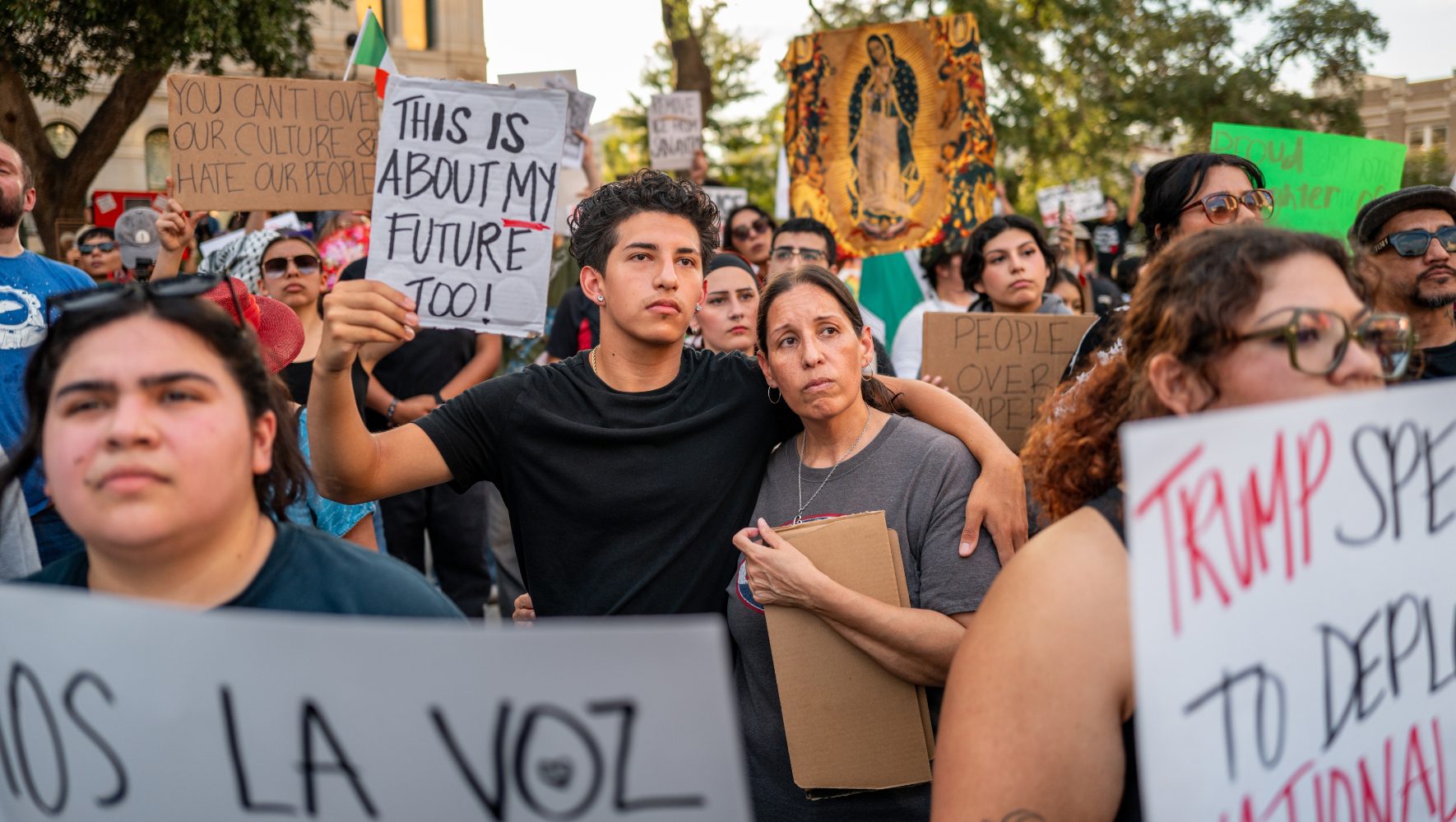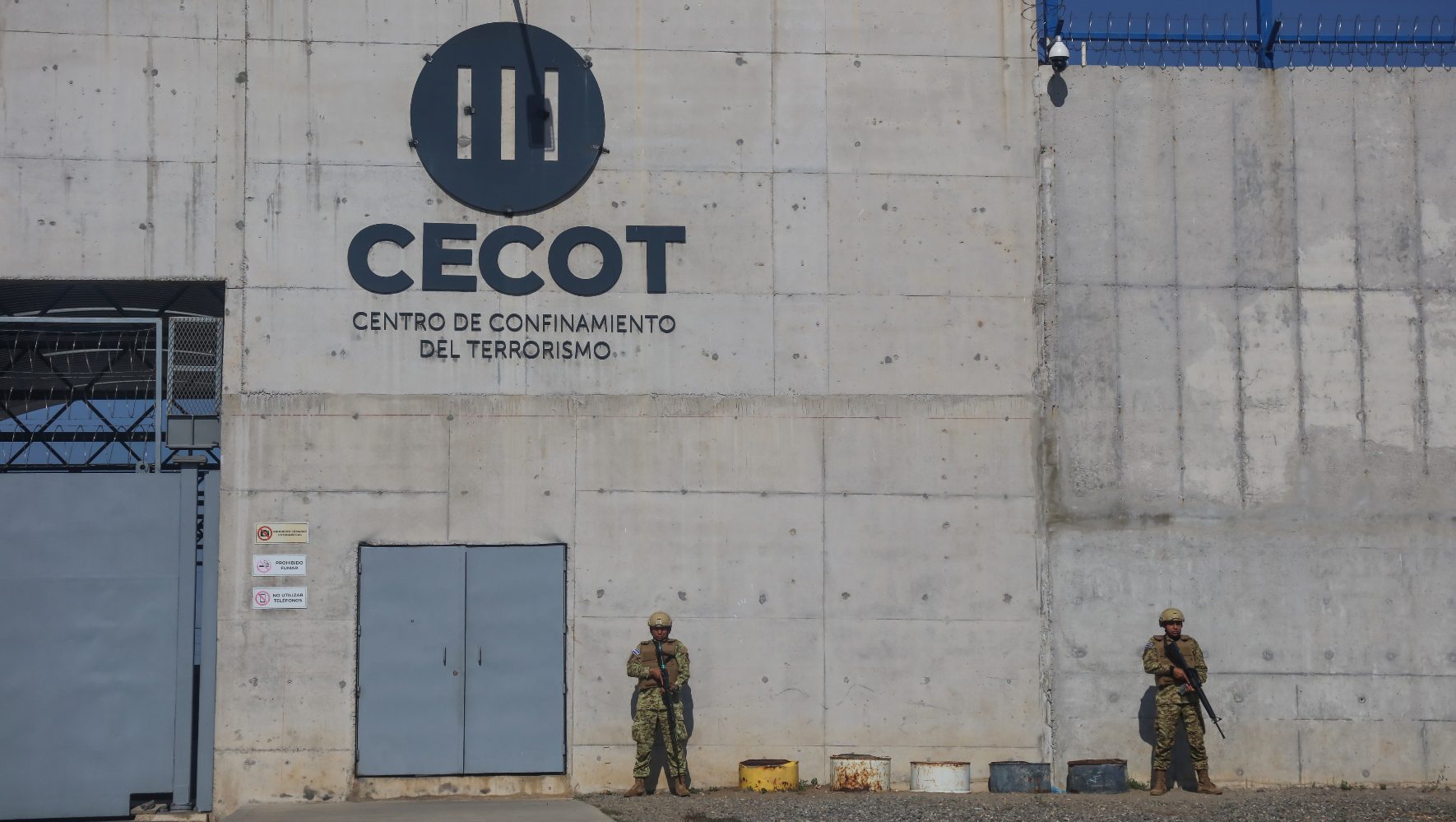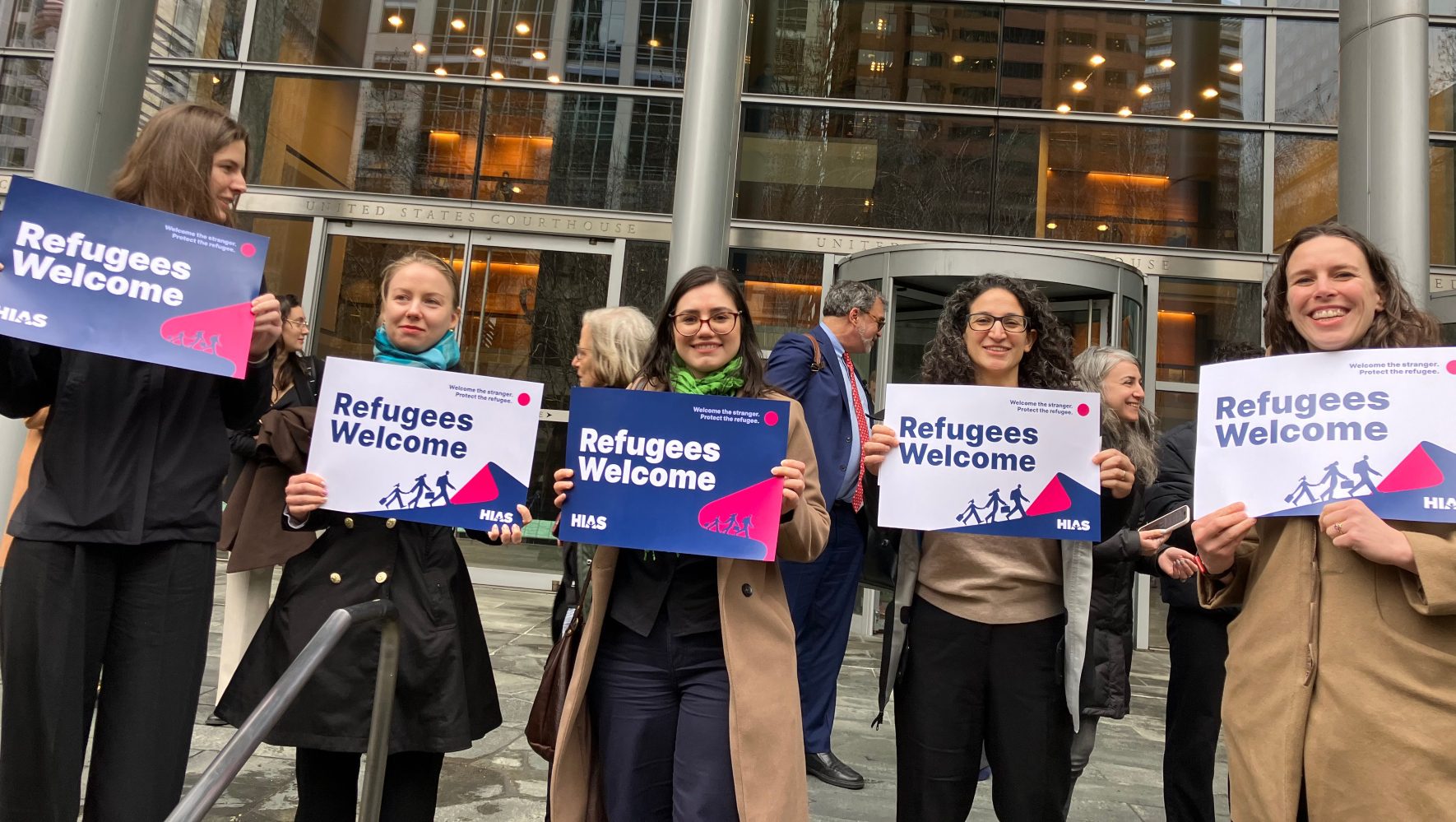The Refugee Ban Is In Effect. Now What?
Jul 13, 2017

Children smile and look through a fence at a UNHCR (United Nations High Commissioner for Refugees) refugee camp in Hammam al-Alil, on the outskirts of Mosul, on July 12, 2017.
(FADEL SENNA/AFP/Getty Images)
UPDATE: On Thursday, July 13, U.S. District Judge Derrick Watson issued a ruling restricting the Trump administration's enforcement of the refugee ban. Specifically, the ruling states that an "assurance" from a resettlement agency does in fact qualify as a "bona fide" relationship between a refugee and a U.S. entity, as outlined by the Supreme Court.
As of Wednesday, July 12, more than 50,000 refugees have officially been admitted to the United States for resettlement this fiscal year, surpassing the revised limit set by the Trump administration.
State. Dept.: 50,000 cap on refugees has been hit as of today pic.twitter.com/aF5N06fnhU
— Jaweed Kaleem (@jaweedkaleem) July 12, 2017
Through its restrictive interpretation of a Supreme Court ruling, the administration can now reduce the number of refugees allowed in for the remainder of this fiscal year, which ends on September 30, 2017.
Many survivors of violence and persecution will not be able to find the safety they were promised in this country. Already, dozens of refugees scheduled to travel to the United States have had their travel canceled because they cannot prove a “bona fide” relationship as narrowly defined by the administration.
What does this mean?
The refugee ban is now partially in effect. Thousands of people who followed all of the rules to qualify for resettlement in the United States, and received security and medical clearances, now face the reality that they could be stuck in limbo for months or years to come.
According to the Trump administration, “bona fide” familial relationships do not include grandparents, grandchildren, aunts, uncles, nieces, nephews, cousins, brothers-in-law and sisters-in-law.
Additionally, according to the Department of Homeland Security, an “assurance” for resettlement from one of the nine national refugee resettlement agencies, such as HIAS, does not qualify as a requisite tie or “bona fide” relationship with a U.S. entity. It is not yet clear how a refugee could prove a formal relationship with an entity, such as HIAS or other similar organizations.
For Mark Hetfield, HIAS president and CEO, this is a painful reminder of periods in America’s past where our immigration and humanitarian policies were driven by fear rather than welcome. “As a Jewish organization that protects refugees, we are reminded of the other shameful times in our history when America slammed its door shut on people fleeing for their lives,” he said in a statement.
“Turning away refugees leads to tragic results—we must not repeat the mistakes of the past.”
Where do we go from here?
HIAS is a plaintiff in one of the two key cases challenging the ban that will be heard together by the Supreme Court in October. Until the Supreme Court reviews the case, refugees must prove they have a “bona fide relationship to a U.S. person or entity” in order to enter the country.
In the meantime, HIAS is continuing to oppose the administration's overly restrictive interpretation of the Supreme Court order from last month. In addition to continuing to resettle the individuals who can prove “bona fide” relationships, HIAS, together with IRAP, has filed multiple amicus briefs supporting the State of Hawaii’s efforts to persuade the U.S. District Court there to clarify the interpretation.
Either way, this fall, Congress will decide funding levels for refugee resettlement and global humanitarian needs for the next fiscal year, and the Trump administration will, after consultations with Congress, announce the “Presidential Determination,” or the maximum number of refugees that can be resettled during that period.
The next few months could have a major impact on longstanding U.S. refugee policy which has been in place since the Refugee Act of 1980 was enacted. Certainly, for the more than 65 million displaced people in the world searching for safety today, America appears to have rolled up its welcome mat for now.
Feeling motivated to take action in support of refugees? Please take a moment to urge Congress to press the Trump administration to resettle at least 75,000 refugees in fiscal year 2018 and ensure sufficient funding to support refugees in the U.S. and around the world.


